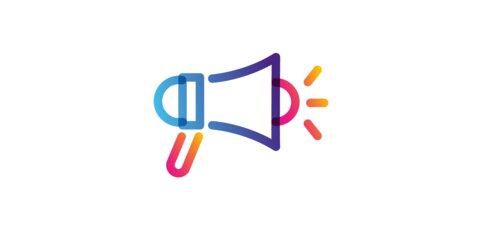E-learning
Our e-learning modules have all been written and designed by autistic people and other autism specialists
These online training modules are unique in design, innovative in delivery, and full of knowledge directly from autistic people. They have been created to provide knowledge and understanding of autism at your own pace and at a time convenient to you. Our e-learning offer includes a range of topics which can be purchased individually or as specific bundles. Some of our modules are free to access.

10% year-end discount
Available on training, e-learning, consultancy and accreditation packages booked by 30 April 2025.
Find out moreModules key features
- The modules include interactive features, such as reflective questions, film clips, quizzes, animation and learner activities.
- The majority of the modules take around 60-90 minutes to complete.
- We use e-learning software (Articulate Storyline 360) to provide every learner with an accessible experience. The modules are keyboard navigable and compatible with JAWS and most NVCD screen readers.
- Learners will receive a certificate of completion which can be used towards your CPD recording forms.
Modules overview

Understanding autism
This module provides perspectives from autistic people about how autism is defined and experienced. It will enable learners to recognise the strengths and challenges experienced by many autistic people and how to respond to create enabling environments.

Autism and communication
This module explores how to recognise communication differences for autistic people and which factors impact upon successful communication. Learners will be able to better recognise the impact of these differences, aiming to reduce barriers to successful communication.

Autism and sensory experiences
This module explores how people respond to information from the senses and how this can be experienced differently by autistic people. Learners will be better able to recognise the impact of these differences for autistic people and how to provide effective support.

Autism, stress and anxiety
This module explores the differences in how autistic people experience stress and anxiety. Learners will explore the factors that impact on stress and anxiety, in order to provide effective support to reduce the impact of stress and anxiety on autistic people.

Supporting families
This module explores providing support for people on the autism spectrum and their families. Learners will discover the experiences of families, consider common difficulties and acquire effective approaches for support.

Autism, sport and physical activity
This module provides an introduction to autism, whilst focusing on the delivery of sport. Developed as part of the active for autism project, it focuses on the how recognising and understanding potential key areas of difficulty experienced by both the participants and the session leaders is vital to providing effective support.

Autism and the Police Service
This module aims to make the police more aware of autism and give them a better understanding of autism and ways in which they can offer support to autistic people. It focuses on different elements of policing by using case studies, exploring people's experiences in public spaces, and offering advice on how to make reasonable adjustments.

Women and girls on the autism spectrum
This module aims to support professionals to identify autistic women and girls. It is specifically aimed at diagnosticians, but was developed in such a way that it should be useful to anyone with an interest in autism, including autistic people, parents, carers and a wide range of other professionals.

Autism in the workplace
This module aims to increase participants’ understanding of autism and develop their confidence in identifying and implementing reasonable adjustments for their autistic colleagues. It is suitable for all staff working alongside or managing autistic colleagues including managers, supervisors, HR staff, colleagues and workplace mentors.

A guide to the mental health needs and experiences of autistic teenagers
The aim of the module is to increase understanding of autistic experience, autistic mental health experiences and to explore supportive strategies to support young autistic people’s mental health.

Introduction to autism for public transport professionals
This module is specifically aimed at staff working in the public transport sector. It provides insight into autistic experience, and encourages delegates to consider what adjustments could make transport more accessible.

Finding Employment
There is an undiscovered workforce of motivated autistic people who are having serious difficulty finding work. Thanks to our sponsors, The City Bridge Foundation, we are able to offer our Finding employment e-learning module free of charge.

Managing money
This module was created to help learners to recognise their strengths as well as the challenges they may experience with managing their money. It shares real-life experiences of autistic people about the sorts of difficulties they encounter, and how they successfully manage their money.

5 for 4 essential bundle
Essential Bundle (5for4): This bundle will give you access to all 5 of our essential modules for the price of 4. Modules include: Understanding Autism, Autism & Communication, Autism & Sensory Experience, Autism, Stress and Anxiety, Autism: Supporting Families.

Non-medical helpers and mentors (NHM) bundle
Non-medical helpers and mentors (NMH) Bundle Our NMH bundles consists of six modules for the price of five: Understanding autism, Autism and communication, Autism and sensory experience, Autism, stress and anxiety, Autism: supporting families, Women and girls on the autism spectrum.

Professional practice
Articles and opinion pieces written by professionals and autistic people who share their knowledge, good practice, research and advice for anyone working with autistic people.
Browse professional practice articles